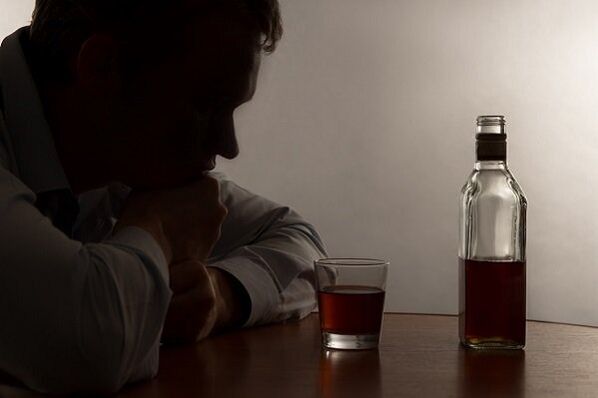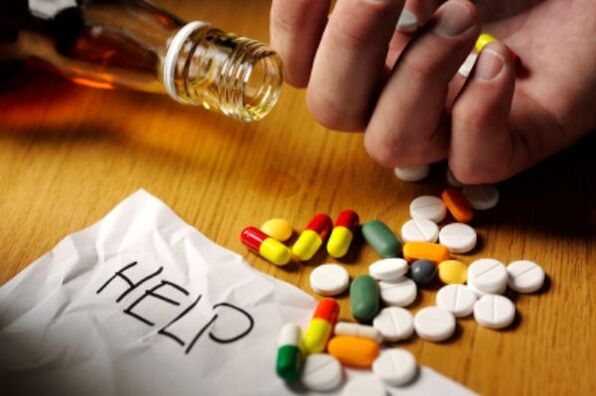Drinkers and their relatives believe that it is better and more correct to quit drinking suddenly than to quit bad habits gradually. Such a method cannot be equally effective for everyone, and then people ask how to gradually stop drinking so as to minimize the damage to health?
Can you stop drinking suddenly
After drinking, they decide to give up drinking suddenly. They often fail and return to an addicted state again. In addition, the dependence on alcohol will only become stronger, because the human body suddenly stops receiving ordinary ethanol and tries to store it for future use.
People who drink for a long time have become accustomed to the effects of alcohol on the body, so that refusing to drink will not only give people an unpleasant feeling, but also make them more closely connected with the bottle when the wine body breaks. Moreover, this attempt to separate from addiction usually affects a person's healthy physical and mental state and makes the situation worse. However, alcoholism is not a desire to drink, but an addiction formed on multiple levels, and abrupt giving up can lead to disastrous consequences.
important!If the addiction lasts for less than a year, you may suddenly stop drinking.

People who have been drinking for a long time will not be able to give up the "green snake" once and for all. Their throwing should be done in stages, preferably under the supervision of an anesthesiologist. This is due to the fact that with a strong rejection of habits, chronic diseases will worsen and mental problems that did not exist before will develop. In order to prevent the negative emotions of rejection from becoming a reason for drinking again, it is necessary to have the control of a doctor, the support of relatives and friends, and the use of progressive rejection techniques instead of being separated from the addict. Tools sold for free on the Internet can also help in this regard.
What will happen to the body
After giving up drinking for the first time, people's subjective feelings may be uncomfortable. This is due to the adverse effects of ethanol on the body and the fact that alcoholics have not recovered their health.

In the first few weeks from the refusal, a person may experience a nervous breakdown, get sick frequently, and experience depression episodes. The weakened immunity and the fact that the body has not yet adapted to the new situation and trying to get everything back to normal can explain this reaction. During this time, people tend to grab the bottle again, convinced that this is better than getting sick.
important!First of all, there should be someone beside the former alcoholic who can provide him with psychological support and explain that once the body is completely cleared of toxins, health will return to normal.
When the crisis is over and the body returns to health, the former drunk will feel much better and will even be able to notice it. The improvements will be reflected in:
- Enhance the body's defense capabilities;
- Improve skin condition;
- Improve memory;
- The working of the heart and blood vessels is stable;
- The process of digestion and urination is normalized.
Once an abstinent person stops drinking, his general condition will not improve immediately. The body needs some time to solve this addiction problem. You must keep this in mind and don't expect fast results.
Alcohol withdrawal syndrome
Alcoholics often mention fear of drinking when defending their desire to drink. What is this and how to stop drinking to avoid this unpleasant complication?
Withdrawal is the body's normal response to the sudden rejection of something. In the case of alcohol abuse, it is mainly manifested in a dangerous state of delusion.

The manifestation of paranoia is that a few days after refusing to drink, people lose control of themselves. In this case, the following symptoms may occur:
- insomnia;
- Panic attack;
- Hallucinations;
- Rave reviews.
In this mentally ill state, the former alcoholic poses a serious danger not only to himself, but also to the people around him. Symptoms mainly occur at night and in the morning, while people remain calm during the day and night.
Facts have proved that alcoholic psychosis mainly occurs in people who drink alcohol. These people have been drinking for a long time and suddenly quit drinking.
With the gradual elimination of frequently consumed harmful products, withdrawal syndrome rarely occurs. This is another reason for gradually becoming tied to the "green snake".
Gradual failure is the key to success
If you have been drinking for a long time and cannot imagine yourself without a bottle of beer or a glass of vodka, then the doctor recommends that you seek professional help. The anaesthetist who recognizes that he has a problem will give advice on gradual abstinence from alcohol.
Gradually abstaining from alcohol is the best choice for chronic alcoholics. At the same time, various treatment methods for addiction can be combined, from drug treatment to the end of psychotherapy.
The gradual failure consists of several stages.
- First, one must accept the existence of the problem and be prepared to deal with it. This stage is one of the most difficult, because alcoholics usually do not think they have any discomfort.
- Second, you need to overcome pride and seek medical help. For an addicted person, this stage can also be difficult because it means acknowledging that they have weaknesses they must face.
- Third, there is a need for continuous and gradual struggle. For this, you will have to follow the doctor’s advice and avoid contact with drinking companies, which will fundamentally change your lifestyle.

If a person gradually stops drinking, they are more likely to cope with their addiction once and for all. In this case, the body manages to adapt to changes, get rid of accumulated toxins, and form new positive habits to replace negative old habits.
For those whose addiction has entered the chronic stage, quitting alcohol gradually is an option, because it is impossible to quit drinking suddenly. Through such an addictive method, medical advice, a positive attitude and perseverance, and the support of loved ones will be required. The stronger a person's sense of responsibility to stop drinking, the greater the likelihood of success.































